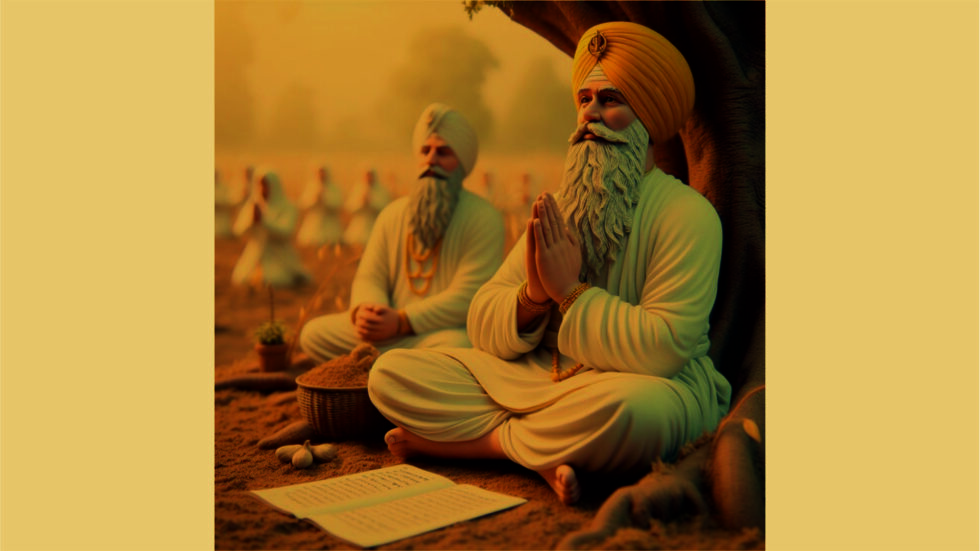
The religious impulse in human beings springs from a longing for truth, peace, and salvation. Religion is not merely the pursuit of ultimate union with God but also a means of living in harmony, love, and peace with fellow beings. The fundamental purpose of religion is to unite—not to divide or separate.
Every religion contains two kinds of values in the context of peace: universal values related to the highest Truth, and local values relevant to the specific needs of a community. While all religions claim to uphold universal values, in practice they often emphasize local concerns. Tragically, followers of each religion tend to blame others for this. Yet the fault does not lie with religion itself, but with the followers who fail to attain the level of Truth inherent in their religious revelations. What we …
As a student of Sikhism, I believe that the central concerns for world peace are foundational to the Sikh faith, which is a revealed religion. Revelation in Sikhism is received through Guru Joti and Guru Jugati—the Light and Method of the Guru—and is expressed in the form of Bani (divine word). The Gurus experienced Truth in a unique way, and this Truth was articulated in their own language. The process of revelation is continuous, from the first Guru to the tenth. All Gurus are believed to possess…
According to the Janam Sakhis, Guru Nanak had been meditating on the highest Truth since the beginning of his spiritual journey. He received a full vision at the Vein stream in Sultanpur, where he remained in deep meditation for three days. During this period, he ascended to the realm of Truth and appeared before the Divine. Upon his return, his face radiated a luminous glow. Crowds gathered as he proclaimed, “There is no Hindu, there is no Muslim,” signifying the essential spiritual unity of all hum…
Bhai Gurdas records that when Guru Nanak visited Mecca, local religious scholars questioned him about the superiority of Hindus or Muslims. Guru Nanak replied that without good deeds, both Hindus and Muslims would lament in the end. Thus, it is not a person’s religious label that matters, but their actions. This is the first and foundational principle of Sikh revelation—an outlook that clearly supports peace for all.
Another essential aspect of Sikhism is its emphasis on reason. Rational thinking is encouraged for evaluating religious concepts, customs, and traditions—not to dominate others, but to seek understanding. The Sri Guru Granth Sahib discourages fruitless arguments (badi), but promotes sincere inquiry (khoj), or the quest for truth. The one who engages in such inquiry is called a Khoji—a seeker—and is referred to as a Gurmukh (Guru-oriented person) or Brahm Gyani (knower of the Divine). This seek…
This reason-based approach is dialogic, not confrontational. We see many examples of this in the Sri Guru Granth Sahib, particularly in Asa di Var and Sidh Goshti. In Asa di Var, Guru Nanak questions a Pandit (Hindu priest) about the significance of the sacred thread (janju). The Guru suggests a symbolic alternative: let compassion be the cotton, contentment the yarn, continence the knot, and purity the twist. This kind of sacred thread, he says, neither breaks nor becomes soiled, nor can it…
In Sidh Goshti, Guru Nanak engages in dialogue with ascetic yogis (Siddhas), who were prominent spiritual figures in India at the time. They ask him about true contemplation. Guru Nanak explains that the “Door of the Master” (Gurudwara) is attained when one’s unstable mind is fixed on Truth and anchored by the remembrance of God’s Name.
In Raag Majh, Guru Nanak asks what kind of Muslim one should be. His response: compassion should be the mosque, sincerity the prayer mat, honest earning the scripture, modesty the circumcision, noble conduct the fast, good deeds the pilgrimage, truth the teacher, and submission to God the rosary. Only then, he says, will one earn honor in the Divine Court.
These examples demonstrate the dialogical model that Guru Nanak championed—engaging with people of all faiths on issues of spiritual transformation. His conclusion was clear: one reaps what one sows. Inner intentions matter more than outward rituals. It is futile to sow poison and expect to reap nectar (Amrit).
Sikhism rejects forced conversion. Spiritual transformation must come through love—first for God, then for humanity. It does not matter which religion one follows; what matters is whether one is faithful to God’s path. A good Muslim must live by true Islamic values, and a good Hindu must live by the truths of Hinduism. What matters is not the name of the religion, but the sincerity of its practice.
Sikh philosophy teaches that one does not need a priest to access the Divine. Every Sikh is a priest unto themselves. There is no place for exploitation by a clergy class. The Gurus promoted the Shabad (divine Word) as the eternal Guru. Sri Guru Granth Sahib is the embodiment of that Word, and a Sikh is encouraged to approach it directly through study and devotion.
Sikhism is not individualistic—it is community-oriented. One realizes divine love and knowledge by joining the Sangat (congregation) of spiritually inspired people. The Sangat is where God’s Name is remembered and experienced collectively.
Sikhism does not recognize divisions based on religion. All human beings are spiritually equal. The inclusion of the hymns of Hindu and Muslim saints in Sri Guru Granth Sahib is testimony to this non-dogmatic and inclusive approach. The story of Bhai Ghanaiya, who served wounded soldiers on the battlefield without distinction of friend or foe, epitomizes this ideal. Sikhism is rooted in the belief that God’s light (Joti) shines in all beings and pervades the entire universe.
Guru Gobind Singh reiterates this message in Akal Ustat, stating that the whole of humanity is one. Some may call themselves Sanyasis, Yogis, Turks, Shias, or Sunnis, but all are part of the same human race. God is the one compassionate Creator of all. His light resides in everyone and He is attained only through love—for Him and for His creation.
In the Sikh Ardas (prayer), the well-being of all humanity is always sought. Bhai Gurdas affirms that Guru Nanak set out to reform all people of the world. Sikhism is not confined to any race, nation, or region. Its message is universal, grounded in the welfare of all humanity.
Sri Guru Granth Sahib urges individuals to be conscious of their spiritual heritage and to live by the essence of their religion. In my view, religion—when understood and practiced in its true spirit—is the only enduring foundation for universal peace. Sikhism, with its emphasis on universal values, offers a powerful model for world peace, mutual cooperation, religious tolerance, and respect for all faiths.
Dr. Gurnam Kaur










